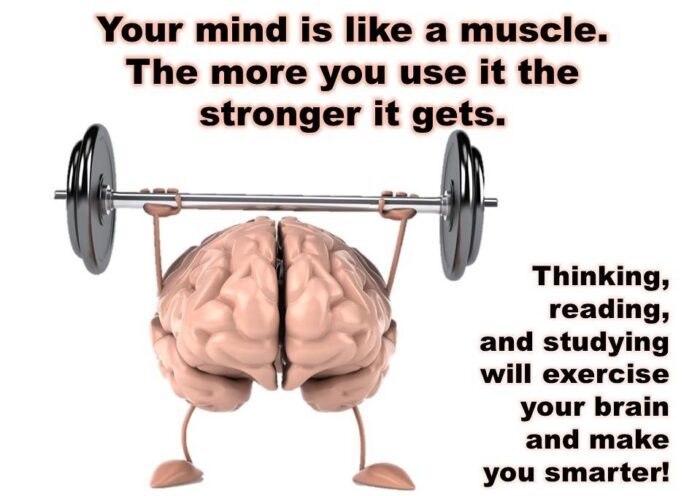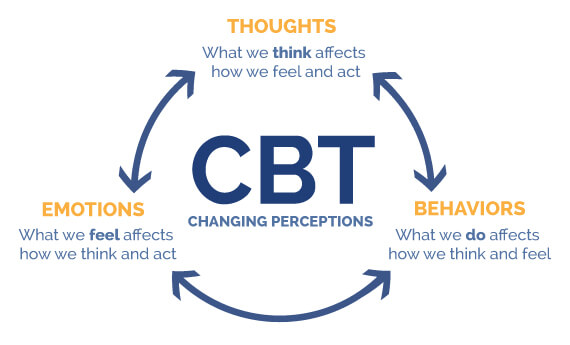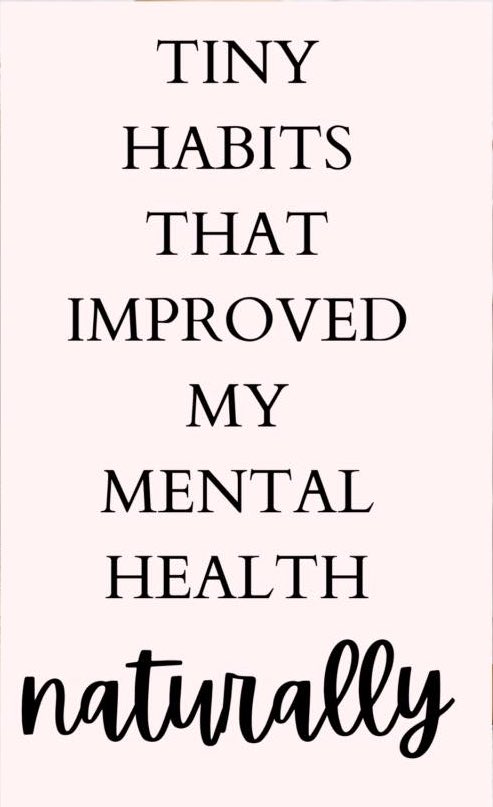In today’s fast-paced society, the importance of mental fitness has dramatically increased and everyone should learn about it.
A critical component of general health and wellbeing is mental fitness. It involves the capacity to control one’s emotions, deal with stress, and maintain mental acuity and alertness.
As per multiple research studies; excellent mental health has been linked to much better physical health.
Building brain muscle is a critical component of obtaining both a healthy mind and body because both are necessary for one another. Yet, what precisely is brain muscle and why is it so crucial?
“brain muscle” describes the brain’s capacity to alter, adapt, and expand in response to mental challenge and stimulus. The brain may be strengthened and trained similarly to physical muscle via regular activity and exercise.
You will learn about the idea of brain muscle and how it relates to mental health in this blog article.
You will as well learn about how developing your brain’s muscles will help you stay mentally healthy and avoid cognitive decline.
Others benefits include Building Brain Muscle Can Help Protect Against Dementia and Alzheimer, for a Healthier Mind and Body, Help You Tackle Daily life challenges.
आइए गहराई से नीचे के बिंदुओं के बारे में अधिक जानें ( संबंधित विषय पर कूदने के लिए क्लिक करें )
2. Why do muscles deteriorate ( either body or brain ) ?
3. What are the easy, cheapest ways to build brain muscles ?
4. What kind of ideas should you consider and write down ?
5. Writing down with pen paper vs typing on your personal devices ( smart phone, computer etc ) ?
6. निष्कर्ष
Unlocking the Mystery of Brain Muscle: Understanding the Difference between Brain Neurons and Body Muscles
Brain muscles do not relate to real muscles; in the sense that we have muscles in our bodies.
Brain has got something called “Neurons”. Neurons are a particular kind of cells; that communicates with one another in order to create thoughts, sensations, and activities. Think of neurons as the brain’s counterparts to the muscles of the human body.
In contrast, the muscular fibres that make up the body’s muscles may contract and relax to cause movement.
You can do physical activities like lifting, running, and jumping because of the body’s muscles being joined to bones and other tissues.
The concept of “building brain muscle” relates to the idea of increasing and strengthening cognitive capacities, such as memory, focus, and problem-solving techniques, via activities like mental exercise, taking on new knowledge, and undertaking difficult cognitive tasks. Similar to how physical muscles are developed through resistance training and other exercises.
Why do muscles deteriorate ( either body or brain ) ?
Muscles can quickly decay, or decrease in size, as a result of inactivity or lack of work out.
When muscles are not routinely exercised, the body loses the need to preserve their strength and size. The muscles contract because the body reabsorbs the protein components after the muscle fibres are degraded.
Muscle fibres might contract and weaken due to a lack of stimulation and exercise.
Lack of stimulation: Some parts of the brain can shrink, lowering cognitive ability, if they are not used or challenged in meaningful ways.
Brain as person gets older: It’s observed that certain parts of the brain naturally shrink. This can have an impact on a person’s cognitive function and raise risk of dementia and Alzheimer’s disease.
Bad lifestyle Choices: Bad Habits as inactivity, eating poorly, drinking alcohol, and smoking; can all have a negative impact on brain health and raise the chance of brain atrophy.
Cognitive function can be preserved and the danger of brain atrophy decreased by engaging in mentally challenging activities and maintaining a healthy lifestyle.
What are the easy, cheapest ways to build brain muscles ?
It’s as easy as that: every day, come up with unique, uplifting ideas (that can lead to great improvements for oneself, one’s family, or society) and write them down.
This results in “concept / idea muscle” development.
Muscles deteriorate rapidly. You could require physical therapy to regain your ability to walk if you spend two weeks in bed. That is how quickly leg muscles deteriorate.
The concept and brain muscle function similarly. Use it or lose it.
You can flexing the idea muscle by jotting down positive thoughts. Your brain’s creative centres are linked together, and this activity causes them to glow in novel ways.
You can feel that the disused, stale portions of brain could be felt starting to function.
The feeling of exercise is also genuine.
As you get up for X minutes, instantly jot down X thoughts. Be sure you do this consistently, without pausing.
Start with 10 ideas in 5 minutes the first month and continue with this for 3 months. Afterwards, shorten the time period or add more ideas in the same amount of time.
According to research, the first hour or two after awakening can be a period when the brain is at its most alert and concentrated, which might make it productive for certain people.
The hour after awakening is sometimes referred to as the “morning alertness peak,” and this is because cortisol levels, a hormone that helps control alertness, are greatest during this time. This may facilitate improved cognition, memory, and focus, making it a potentially productive time for tasks that require focus and mental effort.
Simply strive to maintain consistency for at least a month; after that, extend it to two months and then a year. You yourself can observe the change.
Do it with extreme rigour.
Increase Brain Activity by Writing – Writing Is a Mental Exercise
Writing is a mentally taxing activity that stimulates thought, especially when creating a first draught. Writing can cause mental tiredness when various brain regions become active, similar to the physical exhaustion experienced after working out. Your brain responds by growing new neural connections in these areas the more you write.
In Scientific American, neurobiologist Barry Gordon affirms that writing causes the brain to be “completely engaged most of the time.” In fact, writing requires the use of virtually all parts of the brain, with most regions remaining active throughout the writing process.
What kind of ideas should you consider and write down ?
Journaling your gratitude:
Maintaining a gratitude notebook each day might enhance general wellbeing and encourage optimistic thinking.
Problem-solving:
Putting your difficulties in writing and coming up with answers might help you develop your critical thinking and decision-making skills.
List down any interests you wished to engage in as a youngster but were unable to do so for a variety of reasons.
What are your goals for such activities now?
Future Preparation:
It can be more motivating and organised to write out personal and professional objectives, along with the measures needed to accomplish them.
Brainstorming:
It can assist to produce fresh ideas and develop problem-solving abilities to write down ideas for a project, job, or personal goal.
How to start a journal:
It might be beneficial to summarise what you’ve learned from a book, article, or class in order to enhance your grasp and memory of the material.
Personal Analysis:
Self-awareness and emotional intelligence may be enhanced through journaling your ideas, emotions, and experiences.
Writing down with pen paper vs typing on your personal devices ( smart phone, computer etc ) ?
Writing on actual paper might cause higher brain activity when recalling the material an hour later, according to a study of university students and recent graduates in Japan. According to researchers, writing by hand on actual paper imparts special, sophisticated, tactile, and spatial information that is likely to aid memory.
In fact, Professor Kuniyoshi L. Sakai, a neuroscientist at the University of Tokyo and the corresponding author of the study recently published in Frontiers in Behavioral Neuroscience, claimed that paper is more advanced and practical than electronic documents because it contains more unique information for better memory recall. Along with researchers from the NTT Data Institute of Management Consulting, the study was completed.
The hippocampus, a region thought to be crucial for memory and navigation, as well as regions linked to language and imaginative visualisation were all more active in those who used paper. According to researchers, hippocampal activity shows that analogue techniques provide more spatial information that may be remembered and navigated mentally.
निष्कर्ष
Person’s ability to handle stress, control emotions, and maintain mental agility are all aspects of mental fitness. These are essential to one’s overall health and welfare.
Brain muscles play a crucial role for both mental and physical health. Ability or flexibility of the brain to adapt, change, and grow in response to mental challenge and stimuli that’s what brain muscle is.
Engaging in mentally challenging activities and maintaining a healthy lifestyle can help preserve cognitive function and prevent brain atrophy.
Writing is a mental exercise that can stimulate thought and grow new neural connections.




